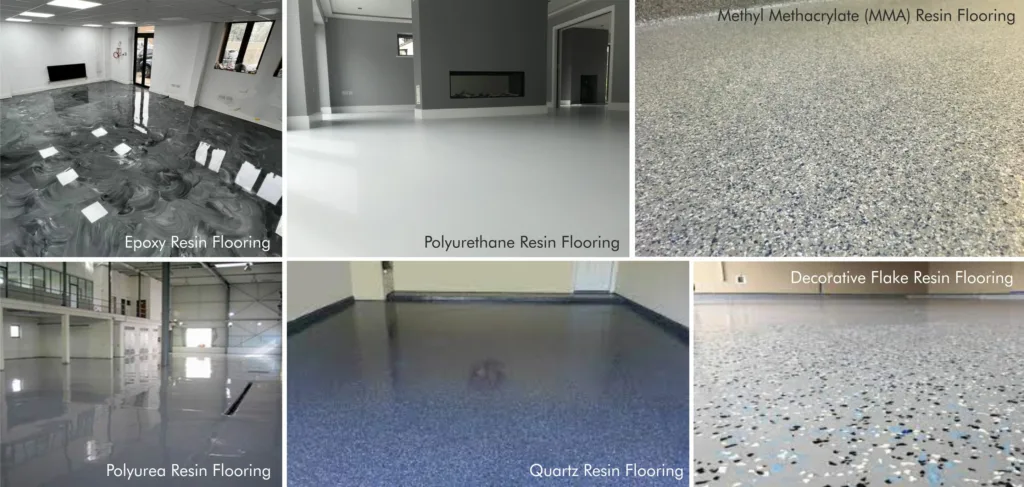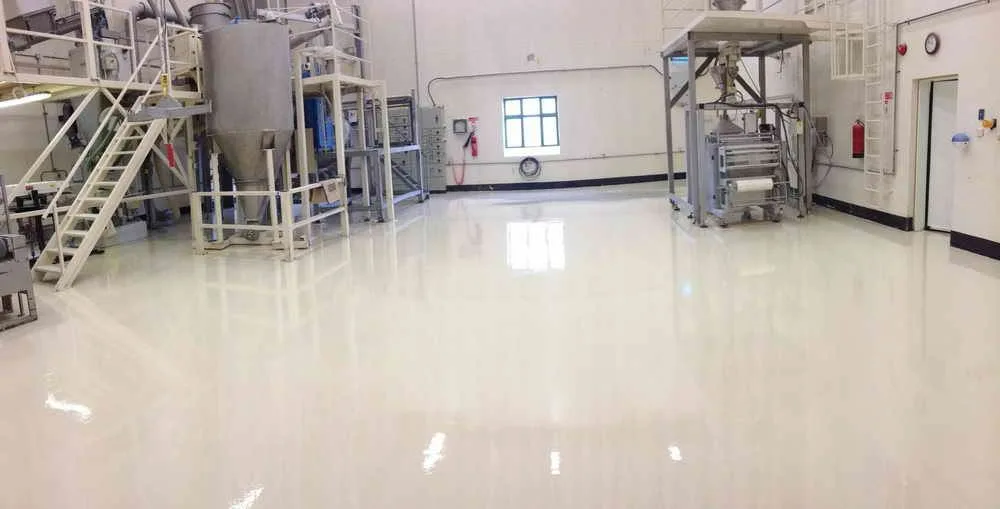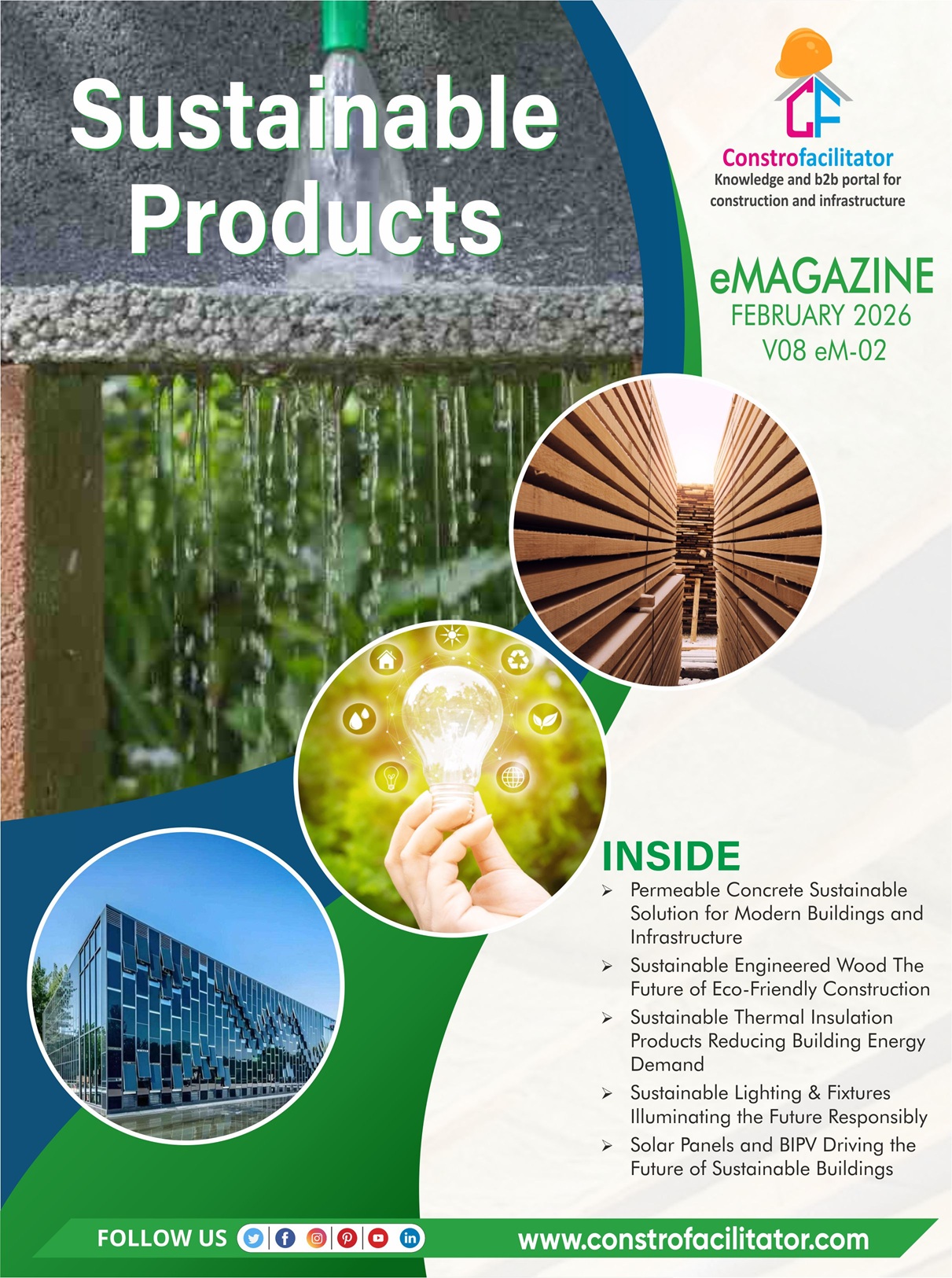Resin flooring refers to a type of flooring system where a liquid resin material is applied onto a prepared substrate, such as concrete or screed, and subsequently cured to create a hardened and durable surface. The resin material, which is typically composed of polymers like epoxy, polyurethane, or methyl methacrylate (MMA), undergoes a chemical reaction or curing process to solidify and form a seamless floor.
Resin flooring systems can be tailored to meet specific requirements, such as slip resistance, chemical resistance, antimicrobial properties, or decorative effects. The choice of resin flooring depends on factors like the intended use, environmental conditions, desired aesthetics, and performance characteristics needed for a particular application.
Requirements of resin flooring:
- Durability
- Chemical resistance
- Slip resistance
- Hygiene and cleanliness
- Seamless and smooth surface
- Thermal resistance
- Customizable aesthetics
- Strong bonding and adhesion
- Low VOC emissions
- Fast installation and curing
- Static control
Different types of resin flooring and their advantages
Epoxy Resin Flooring
Epoxy resin flooring is one of the most popular options. It consists of two components, epoxy resin, and a hardener, which are mixed to create a strong and durable surface.
Advantages and applications;
- Excellent durability and impact resistance.
- High chemical resistance, making it suitable for areas exposed to chemicals.
- Seamless and smooth finish.
- Easy to clean and maintain.
- Can be customised with a variety of colours and finishes.
- Suitable for warehouses, industrial facilities, food and beverage facilities, sports facilities, healthcare facilities etc.
Polyurethane Resin Flooring:
Polythene, or polyethylene, resin flooring refers to a type of resin flooring system that utilizes polyethylene as the primary resin material. Polyethylene is a thermoplastic polymer known for its toughness, flexibility, and resistance to chemicals and moisture. This type of resin flooring is often used in areas with high foot traffic or where impact resistance is important.
Advantages and applications;
- Exceptional flexibility and elasticity, allowing for movement without cracking.
- Excellent resistance to chemicals, including acids and solvents.
- UV-resistant, maintaining its colour and finish over time.
- High abrasion resistance.
- Sound-absorbing properties, reducing noise levels.
- Suitable for areas with high foot traffic, such as commercial spaces, healthcare facilities, and sports venues etc.
Methyl Methacrylate (MMA) Resin Flooring
MMA resin flooring is a type of resin flooring system that uses methyl methacrylate as the main resin component. This type of resin flooring is known for its rapid curing time, making it a popular choice for projects that require quick installation.
Advantages and applications;
- Rapid curing and quick installation, minimising downtime.
- Excellent chemical resistance.
- High impact resistance.
- Suitable for cold temperature applications.
- Ideal for fast-track projects or areas that need to be quickly returned to service.
- Suitable for commercial kitchens, food processing areas, dairy and bakery, cold storage etc.
Polyurea Resin Flooring
Polyurea resin flooring is a highly durable and flexible resin flooring option. It is based on a polyurea polymer, known for its exceptional chemical resistance, abrasion resistance, and impact resistance.
Advantages and applications;
- Rapid curing time, leading to quick installation and reduced downtime.
- Excellent chemical resistance, including resistance to acids, solvents, and oils.
- High impact resistance.
- Waterproof and seamless, providing protection against moisture and contaminants.
- Suitable for areas with heavy foot traffic, such as industrial facilities and parking decks.

Quartz Resin Flooring:
Quartz resin flooring is a type of flooring system where quartz granules or aggregates are embedded in a resin binder, typically epoxy or polyurethane. It creates a durable, decorative, and seamless surface.
Advantages and applications;
- Attractive, Decorative, Granular floor finish.
- Optimum Grain Shape and size uniformity.
- Customizable to complement any décor.
- Custom blend matching and blending options.
- Hard-wearing and abrasion resistance.
- Seamless, Easy to Clean and Hygienic.
- Suitable for Commercial Establishments, Leisure Facilities, Schools and Offices. General Manufacturing Industries-Pharmaceuticals. Laboratories etc
Decorative Flake Resin Flooring:
Decorative flake resin flooring is a flooring system where decorative flakes or chips, typically made of coloured acrylic or vinyl, are scattered over a resinous base coat. It creates a visually appealing and textured surface.
Advantages and applications;
- -Attractive Decorative Floor Finish.
- -Can be applied on tile surfaces-Refurbishment.
- -Seamless, Hygienic and Easy to Clean.
- -Excellent Resistance to cleaning agents, Sugars and Acids.
- -Minimizes Visible Scratches.
- -Suitable for Food Courts, Cafeteria Boutiques,Meeting Rooms Retail, Showrooms, Designers Outlets and offices. Industrial Production and Corridors areas.
Static Conductive Resin Flooring:
Static conductive resin flooring, or electrostatic dissipative (ESD) resin flooring, is a specialized flooring system designed to control static electricity by rapidly dissipating it to the ground. It contains conductive additives that prevent electrostatic discharges.
Advantages and applications;
- Electrostatic Control: Prevents damage to sensitive electronics and equipment.
- Reduces the risk of fire or explosion in hazardous environments.
- Withstands exposure to chemicals and solvents.
- Provides high resistance to wear and abrasion.
- Suitable for Electronics Manufacturing Facilities, Cleanrooms and Laboratories, Data Centers and Server Rooms
Decorative Epoxy Resin Terrazzo Flooring:
Decorative epoxy resin terrazzo flooring is a flooring system that combines colored epoxy resin with aggregates such as marble, quartz, glass, or other decorative materials. It is poured and ground to create a seamless, smooth, and visually appealing surface.
Advantages and applications;
- Offers a luxurious and visually striking appearance.
- Can incorporate various colors, patterns, and materials.
- Provides high resistance to wear, stains, and chemicals.
- Easy to clean and maintain over the long term.
- Suitable for Flight Kitchen. Coffee Shops. Boutiques, Designers Outlets, Schools, Airports Stadiums Canteen, Corridors & Hospitals
Polyurethane Screen Resin Screed Flooring:
Polyurethane screen resin screed flooring is a type of seamless and durable flooring system made of polyurethane resin and screed additives. It is applied in a thick screed layer, providing a robust and resilient surface.

Advantages and applications;
- Excellent resistance to a wide range of chemicals, including acids, alkalis, oils, solvents, and cleaning agents.
- Highly durable and resistant to wear, abrasion, impact, and mechanical stress.
- Non-porous surface that prevents liquid and contaminants from penetrating, making it easy to clean and maintain.
- Can be formulated with anti-slip additives for enhanced traction, even in wet or oily conditions.
- Withstands thermal shock, high temperatures, and thermal cycling without cracking or delamination.
- Provides a seamless and visually appealing surface without joints or seams.
- Suitable for :Food and Beverage Industry, Pharmaceutical and Healthcare Facilities, laboratories, cleanrooms, hospitals, clinics, and pharmaceutical manufacturing.
Step-by-Step Application of resin flooring
The application of resin flooring typically involves several steps to ensure proper preparation, application, and curing of the resin material. Here is a general step-by-step guide for the application of resin flooring:
1. Surface Preparation:
- Thoroughly clean the substrate to remove any dirt, debris, grease, or previous coatings. This can involve vacuuming, sweeping, and scrubbing the surface.
- Repair any cracks, holes, or uneven areas in the substrate using appropriate patching materials.
- Diamond grind or shot blast the surface to create a profile that promotes adhesion between the resin and the substrate.
- Remove any dust or loose particles using a vacuum or compressed air.
2. Primer Application:
- Apply a suitable primer to the prepared substrate. The primer helps enhance adhesion and ensures a strong bond between the substrate and the resin flooring system.
- Follow the manufacturer’s instructions for mixing and applying the primer, including recommended coverage rates and drying times.
- Allow the primer to cure according to the manufacturer’s specifications before proceeding to the next step.
3. Resin Application:
- Prepare the resin material by carefully following the manufacturer’s instructions for mixing ratios, pot life, and other specific requirements.
- Pour or spread the resin material onto the primed substrate in manageable sections, working systematically to ensure even coverage.
- Use a squeegee or roller to spread the resin and achieve the desired thickness and uniformity.
- Pay attention to areas where different sections meet to ensure a seamless transition.
- If desired, incorporate any decorative aggregates, pigments, or other additives during the resin application process.
4. Smoothing and Levelling:
- Use a roller or a spiked roller to eliminate any air bubbles and evenly distribute the resin.
- For self-levelling resin systems, ensure that the material settles and levels itself to achieve a smooth and even surface.
- Use a gauge rake or notched trowel to spread and level thicker resin systems, such as epoxy mortar or cementitious urethane flooring.
5. Curing and Drying:
- – Allow the applied resin to cure according to the manufacturer’s specifications. This can involve specific curing times, temperature requirements, or exposure to UV light.
- – Ensure proper ventilation during the curing process to facilitate the release of any volatile compounds and promote a strong and durable final result.
- – Avoid foot traffic or other activities on the freshly applied resin until it has fully cured and hardened.
Note that the specific steps and procedures may vary depending on the resin flooring system, manufacturer recommendations, and the unique requirements of the project.
Conclusion
When seeking a flooring solution that combines practicality, durability, and performance, resin flooring emerges as a compelling option. By carefully evaluating the project’s requirements and considering the advantages and characteristics of various resin flooring types, the ideal choice can be made





